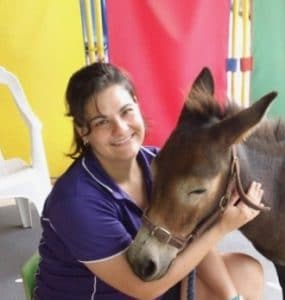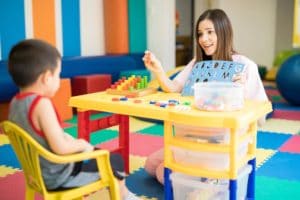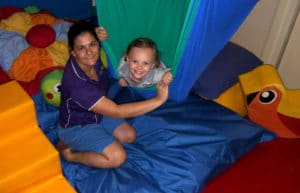If your child is receiving speech therapy, you may wonder why home practice is a crucial component of their treatment plan. While speech therapy sessions with a qualified therapist are essential, consistent home practice plays a significant role in helping your child achieve their speech and language goals. In this blog post, we will explore the reasons why home practice is essential for children in speech therapy.

Reinforces Learning
Home practice reinforces what your child learns during their speech therapy sessions. Just like any skill, practice makes perfect. When your child practices speech exercises at home, they have more opportunities to reinforce newly acquired skills and build upon their progress.
Consistency is Key
Consistency is vital in speech therapy. Regular home practice helps maintain a consistent schedule of speech exercises, which is essential for effective progress. When children practice regularly, their speech muscles become stronger, and their speech sounds become more accurate over time.
Targets Specific Speech Goals
Speech therapists often design home practice exercises tailored to your child’s specific speech goals. These exercises are intended to address your child’s unique speech challenges and help them make targeted improvements. By practicing these exercises at home, your child can work on their individual speech objectives more effectively.
Increased Confidence
Home practice can boost your child’s confidence. When they see themselves making progress and achieving speech milestones at home, it can motivate them to continue working on their speech therapy goals. This increased confidence can translate into more positive attitudes toward therapy and a greater willingness to participate actively in sessions.
Parent Involvement
Home practice allows parents to actively participate in their child’s speech therapy journey. It fosters a sense of teamwork between parents and the speech therapist, creating a supportive environment for the child’s development. Parents can also provide valuable feedback on their child’s progress and any challenges they may be facing.
Enhanced Generalisation
Generalisation is the ability to apply speech skills learned in therapy to real-life situations. Home practice helps children generalise their speech skills outside the therapy room. When they can use their improved speech sounds in everyday conversations and activities, it demonstrates significant progress.
Greater Repetition
The more your child practices, the more repetitions they get for each speech sound or skill. Repetition is essential for solidifying newly learned speech patterns and making them a natural part of communication.
Empowerment
Home practice empowers your child to take ownership of their speech therapy journey. When they actively engage in practice, they become more responsible for their progress, which can lead to increased motivation and a sense of accomplishment.
To make the most of home practice for speech therapy, here are some practical tips:
Set Aside Dedicated Practice Time
Establish a regular practice schedule, ideally at the same time each day. Consistency is key to seeing progress.
Use Visual Aids
Visual aids such as flashcards, pictures, or written instructions can help your child understand and remember their practice exercises.
Keep It Fun
Make home practice enjoyable by incorporating games, rewards or interactive activities that engage your child’s interest.
Provide Positive Feedback
Encourage and praise your child’s efforts during practice. Positive reinforcement can boost their confidence and motivation.
Monitor Progress
Keep track of your child’s progress and share this information with their speech therapist. This feedback can help the therapist adjust the treatment plan as needed.
Seek Guidance
If you have questions about your child’s home practice or are unsure about how to help them effectively, don’t hesitate to ask their speech therapist for guidance and support.
Home practice is an integral part of a comprehensive speech therapy program for children. It reinforces learning, enhances progress, boosts confidence and empowers children to take an active role in their speech development. By making home practice a consistent and enjoyable part of your child’s routine, you can support their speech therapy journey and help them achieve their communication goals. Contact Stepping Stones in Life Therapy Service today to make an enquiry with our speech therapists in Darwin.
Author

Barbara Kapser
Barbara Kapser is our psychologist at Stepping Stones in Life Therapy Service in Darwin. She's a member with the Australian Psychological Society and the Australian Association for Infant Mental Health.
She specialises in perinatal infant mental health, attachment disorders, developmental trauma and behaviour support.










